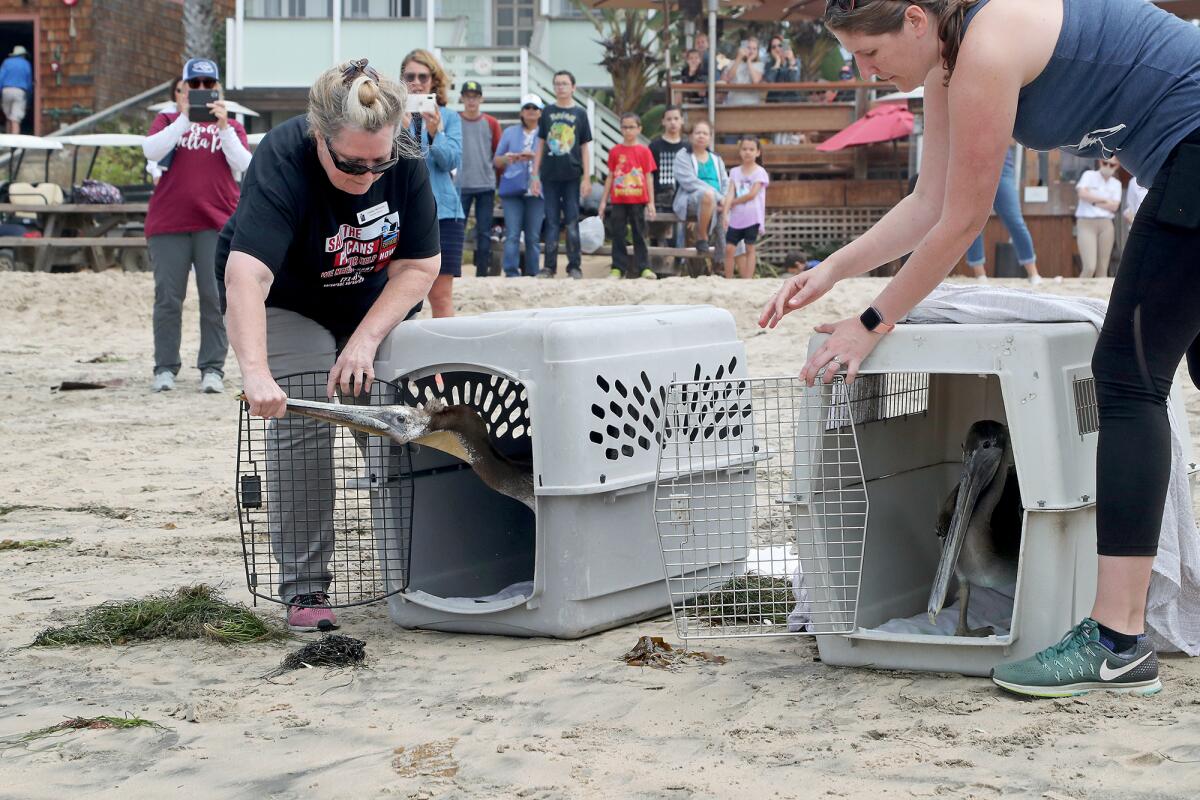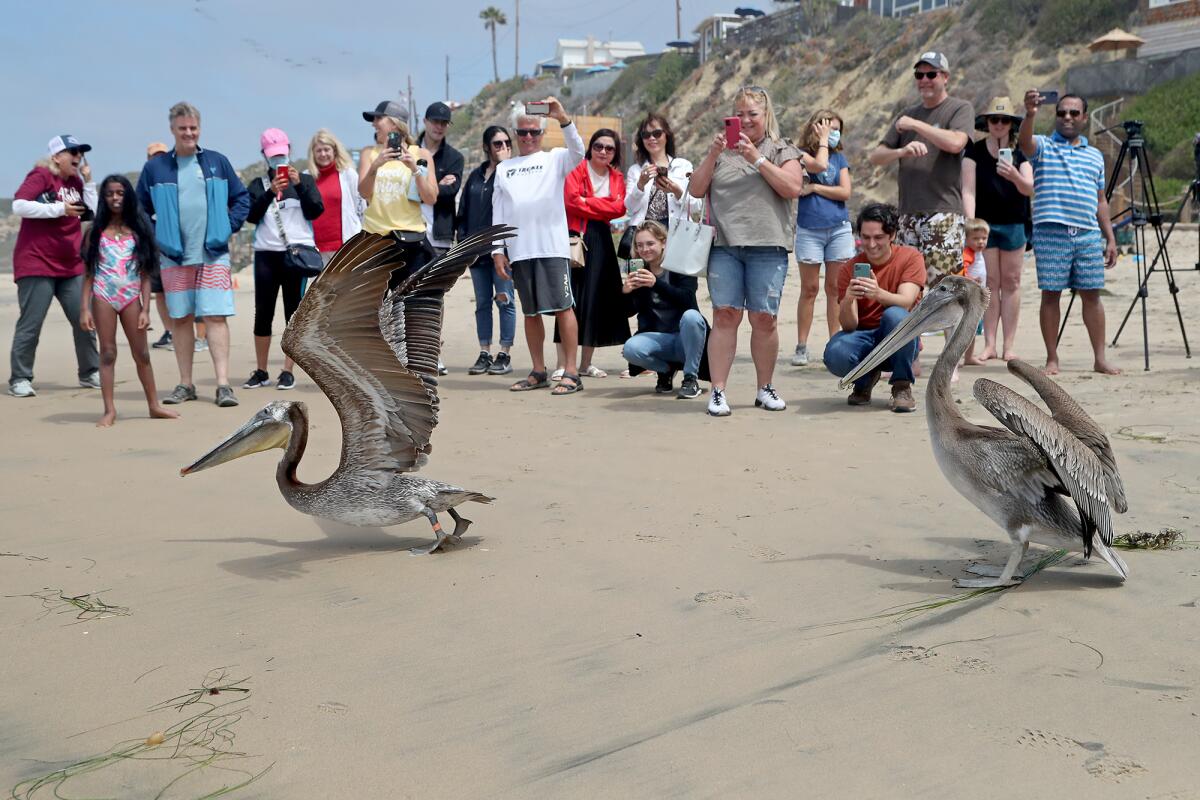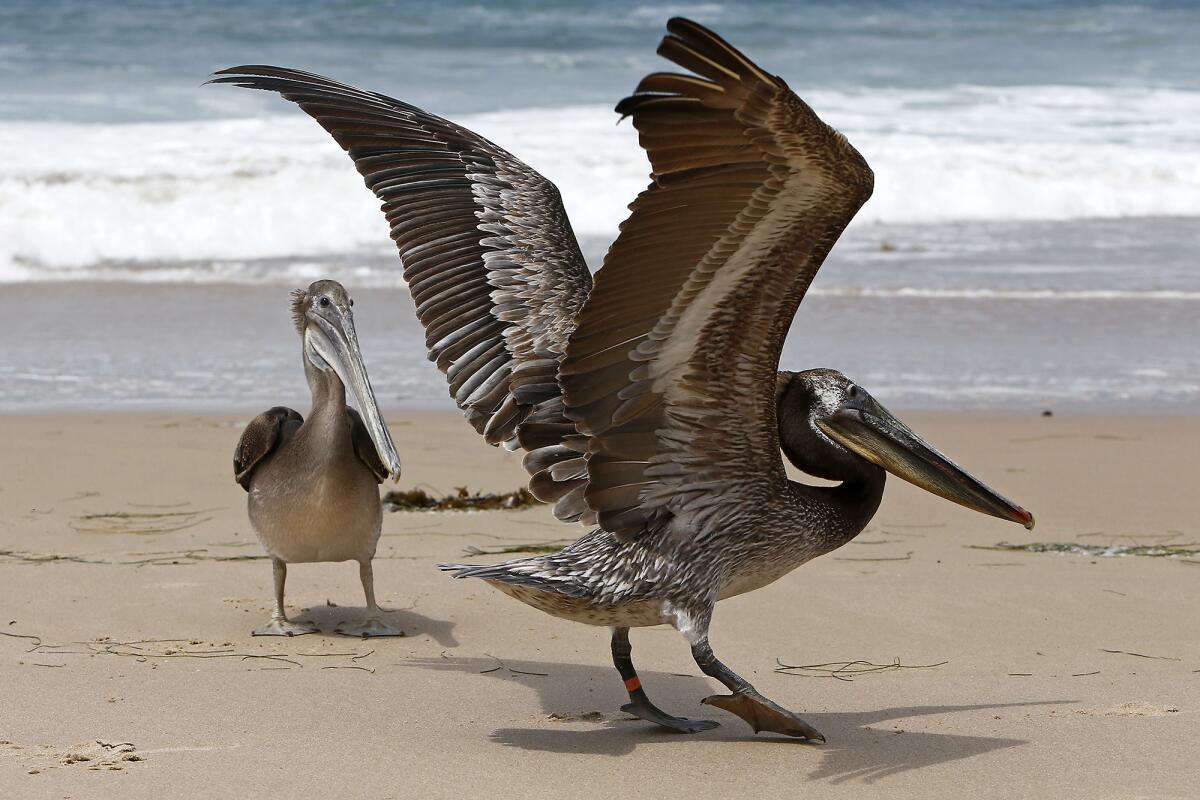Recovered pelicans take flight at Crystal Cove

The young brown pelicans did not immediately fly away Tuesday morning at Crystal Cove State Beach.
Instead, they came out of their cages slowly, before cruising to an area a stone’s throw north.
This was not cause for concern for Debbie McGuire, executive director of the Huntington Beach-based Wetlands and Wildlife Care Center.
“They’ll eventually find their buddies,” McGuire said with a smile, noting that both birds had been caged up for several weeks.
Smiles seemed to be the theme of the day and for good reason.
The Wetlands and Wildlife Care Center officials were there to release the two pelicans into the wild after each had recovered from injuries.

One of the birds had been found at Crystal Cove beach on April 26, with a low body temperature, broken and bloody feathers on its left wing and a slight wing droop. The pelican had a wound on its shoulder, believed to be an injury caused by a fishing hook.
The other pelican was found nearby on May 13 suffering from severe dehydration and hypothermia.
On Tuesday, they were ready to head back into the wild. Dozens of people gathered at the beach for the release. Laure McCubbin of Las Vegas, who happened to be visiting her parents’ Crystal Cove home, brought her 9-year-old son Mark to the beach to watch.
“I would say it was a once-in-a-lifetime experience for us, especially since pelicans are my favorite birds,” McCubbin said. “We wanted to come and see them.”
The center takes in basically any animal that will fit through the door, from birds to mammals to reptiles. McGuire said about 75% of them are eventually released back into the wild.

“Our favorite days are release days,” said Wetlands and Wildlife Care Center board member Kelly Kveton. “It’s the day that you see after all of that hard work, they finally get to go back [into the wild]. It’s wonderful.”
The center’s development director, Matthew Gula, said the facility handled 149 different species of animals last year and nearly 6,000 animals total.
Currently, two snakes are being cared for there, he said.
“We’re seeing a lot of reptiles like that because of those electric bikes that are everywhere,” Gula said. “People are moving so fast, they can’t see what they pass.”
Releasing two brown pelicans back into the wild is significant, especially given the current concern for the species. The Wetlands and Wildlife Care Center reported recently that it had received 22 pelicans since October with severe wing fractures that broke the skin. None of them survived.
McGuire did not want to speculate on whether one of the pelicans released Tuesday was intentionally harmed, though she said it’s a possibility.
“We can’t assume that these [two birds] were involved,” McGuire said. “They could have been. A fishing line entanglement is a serious problem, for more things than just pelicans. [It affects] all marine life.
“It’s abusive. It’s atrocious, actually … People are more aware, and we’re still pushing out that we still need the public’s help.”
The organization is urging those who see suspicious acts against wildlife to call the CalTIP hotline at (888) 334-2258.
Kveton, a science teacher at Edison High School, said that awareness is definitely key. The brown pelican was removed from the federal endangered species list in 2009, but remains protected under the Migratory Bird Treaty Act.
“We live here and we see pelicans every day,” Kveton said. “For us, they’re totally normal. You forget that it’s more than just our city and this population. They’re birds that move. We need to remind people that they are declining and we’ve got to be careful.”
All the latest on Orange County from Orange County.
Get our free TimesOC newsletter.
You may occasionally receive promotional content from the Daily Pilot.




